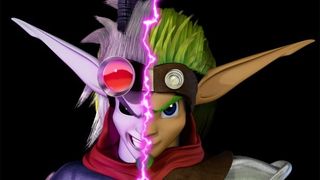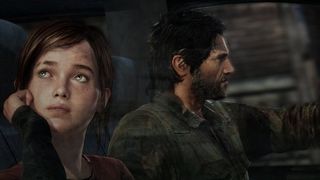
How many of us consumed alcohol, smoked a cigarette, snuck into an R-rated movie or did a plethora of activities reserved for adults before we were of age? I have. I did it to be mature. I was tired of being seen, being treated as a kid. Adults drank. Adults smoked. If I did those things, that would make me an adult, right? Yes, in the throes of desperation, as I sought to be recognized by my peers, I truly believed that the path to maturity lay through a bottle of Mike's Hard Lemonade.
Video games seem to be experiencing the same feelings I had in my high school years, and they seem just as desperate to be mature without understanding what that means. Sex, drugs, and violence are easy and obvious subjects to feature if you're a developer or publisher wanting a game to be seen as mature - but they're shortcuts. And you don't learn discipline by taking the shortcut. You don't get better by skipping hard lessons.
If we want games to rival film and literature as a medium of art (and no, not every game needs to be Citizen Kane), if we want our games to actually be mature and not just rated M for Mature, we need to realize this and call it how we see it. We need to praise those that do well and say to others: You can do better.
Case in point: Jak 2 from Naughty Dog.

While the previous game in the series, Jak & Daxter, struck an exquisite balance of tone by surrounding a mute protagonist with personable allies and sending him on a quest through a vibrant world, Jak 2 was obsessed with being gritty and dark to the point that it kind of soured the whole experience. Within the first four minutes of the game, Jak gets sent to a bleak dystopian future, is tortured, and speaks the first words we’ve ever heard him say: a death threat. Oh, and he has a soul patch now.
Torture, a future gone industrial to the point of creating a lifeless slum and yes - even on a purely dictionary definition level - facial hair can be used to show growth from innocence to adulthood. But Jak 2 doesn't create deep and meaningful moments any more than someone listening to a Linkin Park CD while they apply eyeliner and put on a "DANGER: conformity hazard" t-shirt that they bought from Hot Topic does (and yes, I'm describing myself again). It's an empty, hollow use of mature topics - an attempt to look mature without taking the time to actually be mature.
And don't think I'm picking on Naughty Dog here. There are many other games that explored the territory of ‘mature’ games and came away just as shallow as Jak 2. The Prince of Persia became a brooding Criss Angel lookalike in The Warrior Within. Ratchet ditched his acerbic metal pal and competed in gladiatorial deathmatches in Ratchet: Deadlocked. The Bionic Commando reboot programmed hero Nathan 'Rad' Spencer's wife into his augmented grappling hook arm.
Sign up to the GamesRadar+ Newsletter
Weekly digests, tales from the communities you love, and more
To this day, the trend of misusing mature continues. (SPOILER WARNING for Metal Gear Solid: Ground Zeroes) Ground Zeroes tortured and sexually assaulted children, making father figure Snake cut open a girl's stomach - without anesthesia, of course - to remove a bomb, only to have her blow up anyway because of a second bomb hidden in her womb. (SPOILERS end here).

What inclusions like these fail to grasp is the concept of subtlety. Maturity is quiet. Maturity is humble. Maturity is seeing someone you disagree with and carrying on with your day. Maturity is solving problems without thinking that the solution to all of them is the same (mostly punching it).
The less you can imagine the game asking you "Do you get it? Do you get the metaphor??" and the more it lets you decide for yourself how you feel, the more mature it is. Because someone who is mature might care what you think, but they don't change themselves to try and win you over. They're not out to impress anyone by being something they're not, by doing things they don't do. Maturity speaks for itself.
Let me illustrate this by circling back to Naughty Dog. In 2013, the same studio behind the tone-deaf Jak 2 gave the world The Last of Us. It was a vastly different game from Jak 2, but they shared themes of anger, betrayal, vengeance and loss. And where Jak 2 couldn't wait to show how very not like its predecessor it was, The Last of Us took its time and trusted the audience to understand how a character would think rather than have them announce how they feel.

In the final scene of that game, Joel makes a choice that defines himself, Ellie, and the fate of the world. I can't call it good, and I can't call it bad. The credits roll not with another character celebrating or despising his actions, but on the simple word, "Okay." Two years later and I can't neatly categorize how I feel about that moment. That, to me, is mature. It gives the gift of choice by staying quiet, letting us decide how to interpret the scene.
Maturity isn't facial hair and swearing, it's deciding how you feel about lying to your daughter.
Sam is a former News Editor here at GamesRadar. His expert words have appeared on many of the web's well-known gaming sites, including Joystiq, Penny Arcade, Destructoid, and G4 Media, among others. Sam has a serious soft spot for MOBAs, MMOs, and emo music. Forever a farm boy, forever a '90s kid.
Most Popular


